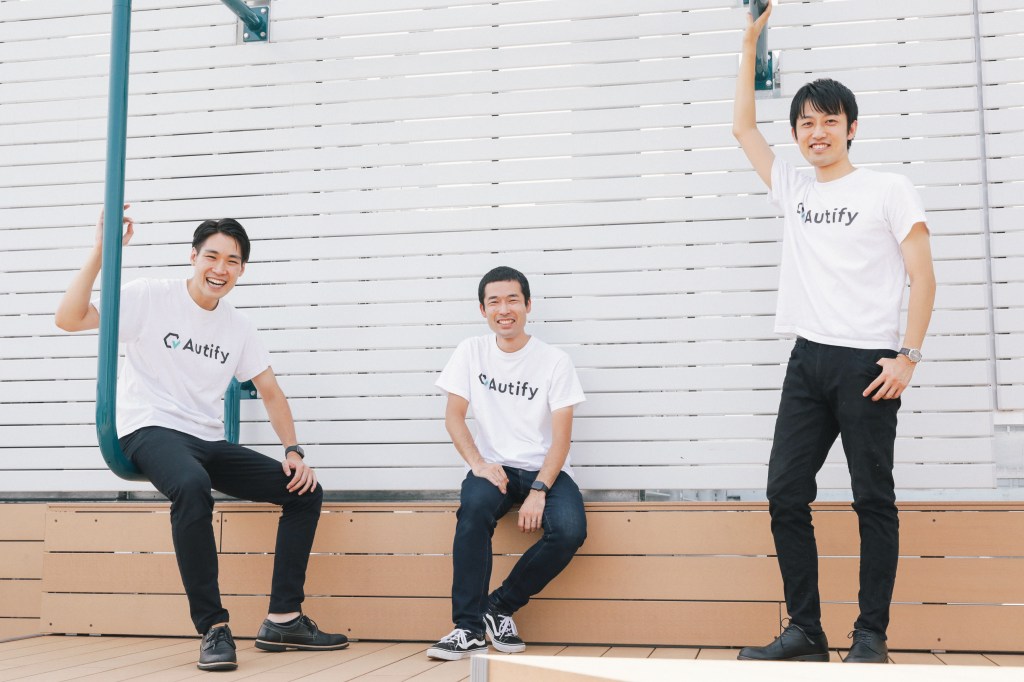While working as a software engineer in Japan, Singapore and San Francisco for the past 10 years, Ryo Chikazawa, CEO and co-founder of Autify, came to realize that there’s one common problem in the software development industry; software testing takes excessive time.
Chikazawa and co-founder Sam Yamashita started Autify in 2016 in San Francisco to develop software testing automation, enabling software developers to expedite the delivery of quality software to their customers in a rapidly changing marketplace.
Now, Autify’s software testing automation addresses the issues of a labor shortage as well as technical difficulty through its no-code platform.
Autify announced today it has secured a $10 million Series A round to support new product development, including its launch of native app testing for mobile and global expansion.
The latest funding brings Autify’s total raised to $12.2 million, Chikazawa said. Autify, a fully remote company, has 30 employees globally.
World Innovation Lab (WiL) led the Series A, with new investors Uncorrelated Ventures and individual investor Jonathan Siegel also participating. Existing backers Archetype Ventures, Salesforce Ventures and Tably joined the round as well.
The majority of Autify’s global peers offer low-code test automation solutions, targeting these at enabling software developers with a range of coding skills to perform their work faster. But several countries, including Japan, still face a severe developer shortage issue the low-code approach cannot resolve, Masaya Kubota, partner of WiL said in an interview with TechCrunch.
“Low-code solutions may work for tech-savvy companies, but no-code is able to capture an even bigger mass market across the globe,” Kubota told TechCrunch.
“Previously, software testing automation could be done only by people who could write code but Autify as a no-code solution is here to allow anyone to automate testing, which is beneficial for both developers and non-developers,” Chikazawa continued.
The three key features of Autify for web and mobile are cross-browser, multi-device testing in parallel; auto-repair with AI; and visual regression test. Autify’s AI detects any changes in the source code/UI and automatically corrects the test scenario at every run while its visual regression automatically detects and allows users to run tests without maintenance, based on its statement.
With remote work becoming a standard in many companies globally, software developers and QA teams are finding it increasingly difficult to prepare and manage mobile devices for manual testing. Autify’s no-code for mobile allows anyone to easily create, execute and automate software test scenarios without programming knowledge or automation skills, just by operating their mobile app on a web browser. It doesn’t need to prepare real mobile devices with different combinations of operating systems, screen sizes, network operators, and user scenarios, Chikazawa said.
Its newly launched “Autify for mobile” version improves the efficiency of testing mobile native applications, aiming to dramatically improve QA productivity by allowing users to manage testing for both web and mobile native applications on the same platform.
Autify for web launched in October 2019 and has a large number of B2C and B2B SaaS customers including Unity, DeNA and ZOZO in Japan, the U.S., Singapore as well as Europe, according to Chikazawa.
The company is currently focusing on two markets, the U.S. and Japan, but plans to fuel further global expansion, Chikazawa said.
“Autify had that global vision right from the start, and it is backed by a well-thought-out go-to-market strategy. Instead of customizing their solution only to Japanese users which tend to be hard to scale globally, Autify decided to design their solution by global standards from day one,” Kubota told TechCrunch.
The software testing market is projected to increase by $60 billion by 2027, according to research by Global Market Insights.
“With 75% of global companies still manually performing software development tests, Autify is hoping to disrupt the $1.3 trillion global testing market by providing a no-code application for automated testing,” said Chikazawa. “Autify’s three-pronged approach to automation of testing — no-code, AI-powered and customer success — helps address the challenges that were plaguing the testing market for far too long, such as labor shortage, high maintenance cost and technical difficulty. The best part of all this is that Autify manages to address these issues without having to sacrifice product quality at any stage of the development.”
“Autify can win in the testing market because lack of developers is not a Japan-only issue. For example, even in the U.S., the Bureau of Labor Statistics indicates that by 2026, the shortage of engineers will exceed 1.2 million,” Kubota said.
Autify enables not just tech companies, but also companies across regions and industries that may not have enough technical staff to improve their software development, Kubota mentioned.
Global consumer spending in mobile apps has reached $111 billion in 2020, with an increasing 30% year on year in 2019, and the market continues to grow at a rapid pace, as per its statement citing Sensor Tower.
‘No-code’ tool maker, Heyflow, nabs $6M to fix your customer conversions
Leapwork raises $10M for its easy process automation platform, plans US expansion
‘No-code’ process automation platform, Leapwork, fires up with $62M Series B































Comment